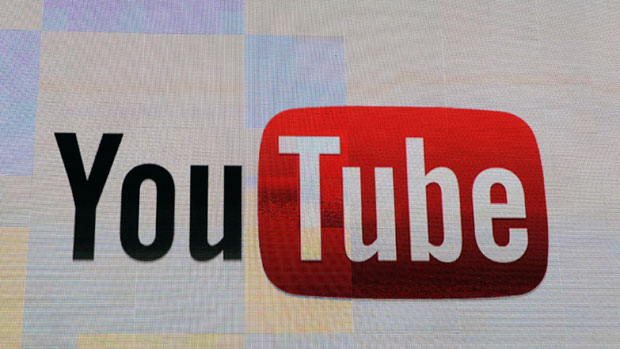YouTube accused of illegally collecting children’s data
Advocacy groups in US say the video-sharing website is guilty of violating child privacy laws

A free daily email with the biggest news stories of the day – and the best features from TheWeek.com
You are now subscribed
Your newsletter sign-up was successful
YouTube has been illegally obtaining data on children’s viewing patterns, according to more than 20 advocacy groups in the US.
In a joint complaint filed to the Federal Trade Commission on Monday, they allege the Google subsidiary is violating children’s online privacy by collecting data and using it to target advertising.
Under federal law, websites directed at children under the age of 13 are required to get parental consent in order to collect data.
The Week
Escape your echo chamber. Get the facts behind the news, plus analysis from multiple perspectives.

Sign up for The Week's Free Newsletters
From our morning news briefing to a weekly Good News Newsletter, get the best of The Week delivered directly to your inbox.
From our morning news briefing to a weekly Good News Newsletter, get the best of The Week delivered directly to your inbox.
Those are “the basic requirements, and Google doesn’t even try to meet them”, said the Campaign for Commercial-Free Childhood, a signatory to the complaint.
“Instead, their privacy policy says that YouTube isn’t for children under 13, and that kids shouldn’t use it,” it added.
Research carried out by marketing firm Trendera this year revealed that 45% of children aged between 8 and 12 have a YouTube account - and there is no way to restrict their access.
While Google “doesn’t let advertisers select age groups under 18, the complaint says there are still a number of ways to target ads at children” including the use of keywords like “toy”, CNN Money reports.
A free daily email with the biggest news stories of the day – and the best features from TheWeek.com
Jeff Chester of the Center for Digital Democracy said the company is guilty of deliberately luring children to a platform filled with targeted ads.
“Just like Facebook, Google has focused its huge resources on generating profits instead of protecting privacy,” he said.
Responding to the complaint, Google said protecting children and families was a “top priority” and promised to “evaluate if there are things we can do to improve”.
-
 How to Get to Heaven from Belfast: a ‘highly entertaining ride’
How to Get to Heaven from Belfast: a ‘highly entertaining ride’The Week Recommends Mystery-comedy from the creator of Derry Girls should be ‘your new binge-watch’
-
 The 8 best TV shows of the 1960s
The 8 best TV shows of the 1960sThe standout shows of this decade take viewers from outer space to the Wild West
-
 Microdramas are booming
Microdramas are boomingUnder the radar Scroll to watch a whole movie
-
 Are Big Tech firms the new tobacco companies?
Are Big Tech firms the new tobacco companies?Today’s Big Question A trial will determine whether Meta and YouTube designed addictive products
-
 Will AI kill the smartphone?
Will AI kill the smartphone?In The Spotlight OpenAI and Meta want to unseat the ‘Lennon and McCartney’ of the gadget era
-
 Has Google burst the Nvidia bubble?
Has Google burst the Nvidia bubble?Today’s Big Question The world’s most valuable company faces a challenge from Google, as companies eye up ‘more specialised’ and ‘less power-hungry’ alternatives
-
 How the online world relies on AWS cloud servers
How the online world relies on AWS cloud serversThe Explainer Chaos caused by Monday’s online outage shows that ‘when AWS sneezes, half the internet catches the flu’
-
 Is the UK government getting too close to Big Tech?
Is the UK government getting too close to Big Tech?Today’s Big Question US-UK tech pact, supported by Nvidia and OpenAI, is part of Silicon Valley drive to ‘lock in’ American AI with US allies
-
 Google: A monopoly past its prime?
Google: A monopoly past its prime?Feature Google’s antitrust case ends with a slap on the wrist as courts struggle to keep up with the tech industry’s rapid changes
-
 South Korea's divide over allowing Google Maps
South Korea's divide over allowing Google MapsTalking Points The country is one of few modern democracies where the app doesn't work
-
 Google avoids the worst in antitrust ruling
Google avoids the worst in antitrust rulingSpeed Read A federal judge rejected the government's request to break up Google